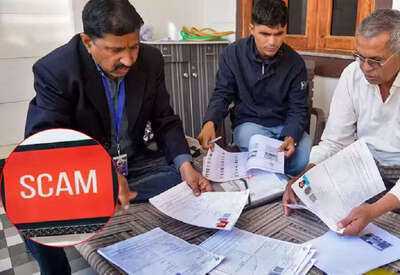
Special Intensive Revision (SIR) campaigns are currently underway in many states across the country. Voters are being asked to fill out verification forms. Meanwhile, cases of cybercriminals taking advantage of this process are emerging, where they are luring people into their trap.
Cybercriminals are posing as employees of the Election Commission or BLOs and soliciting information from people through calls and messages. In many cases, cybercriminals are gaining access to bank accounts by asking for OTPs or stealing phone data by making people download fake APK files. So, let us tell you today how you can protect yourself from cybercriminals being perpetrate in the name of the SIR form.
Officials Issue Warning
Regarding cyber fraud related to SIR, officials issued an advisory stating that cybercriminals are attempting to defraud people in the name of the SIR process. The advisory clearly states that voters should never share their OTP or personal details with any unknown caller. SIR, or Special Intensive Revision, is the Election Commission's process under which voter lists are updated door-to-door. Its purpose is to ensure that every eligible voter's name is correctly included and that fake or duplicate names are removed. This entire process is conducted through BLOs, not through calls or online links.
How is the SIR scam being perpetrated?
Regarding SIR, cybercriminals call people in the name of the Election Commission and claim that their name may be removed from the voter list, and that it is necessary to fill out a form. They then ask for the OTP and then send a fake link. Cyber criminals trick ordinary people into downloading files like the SIR APK. Once these files are installed, the scammer gains access to their mobile phones, allowing them to steal banking apps, UPI, and phone data.
How to avoid SIR fraud?
To avoid SIR fraud, try not to share your OTP with strangers. Also, don't download any SIR-related apps or APK files. Don't trust anyone other than BLOs. Also, verify any calls, messages, or links beforehand. The Election Commission has also clarified that neither TRAI, nor banks, nor any government department sends TRAI-related SMS.
What to do if you get scammed?
If you believe someone has scammed you in the name of TRAI, immediately block your bank or UPI service. Uninstall fake apps from your phone and change all passwords. Apart from this, call the cyber helpline 1930 and lodge a complaint on cybercrime.gov.in.